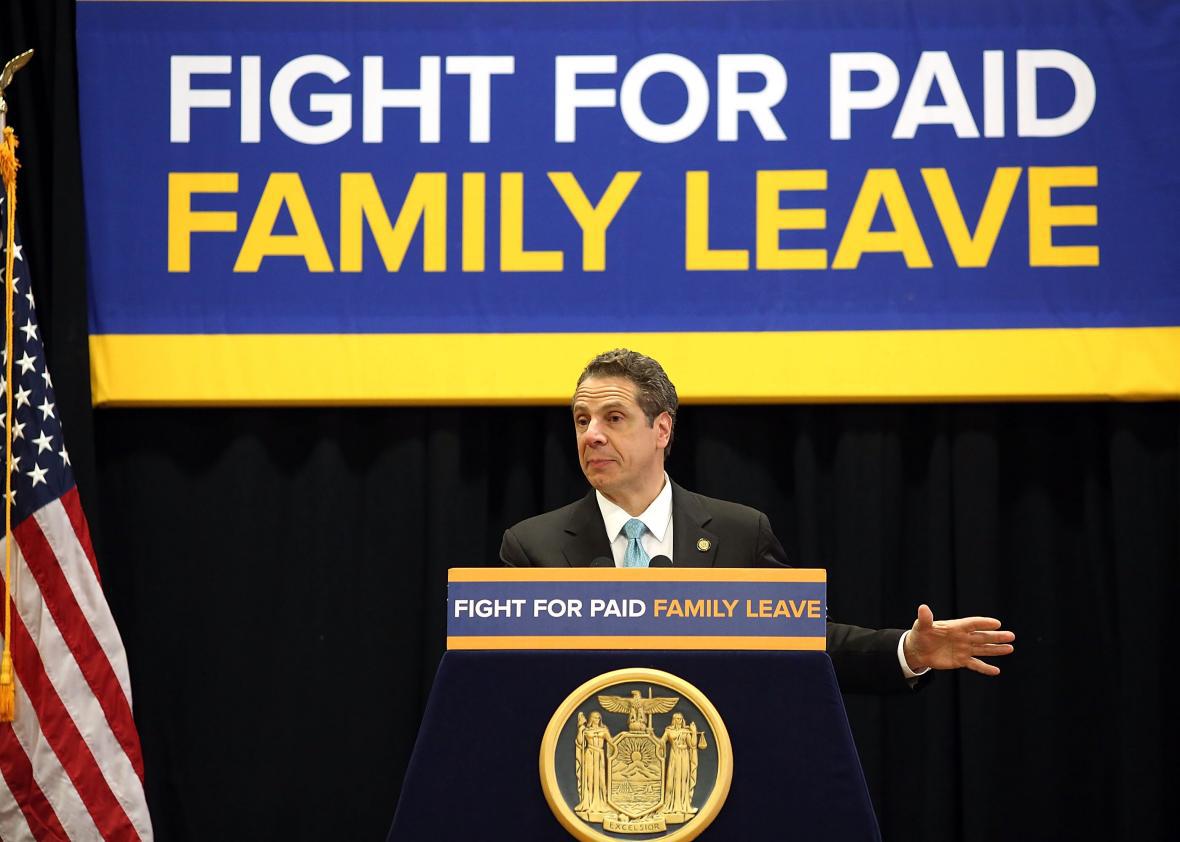All workers in New York state will soon be eligible for a guaranteed 12 weeks of paid family leave, one of Gov. Andrew Cuomo’s legislative priorities, which passed Thursday in a long-debated budget agreement.
Beginning in 2018, all full- and part-time employees who’ve been working at their jobs for at least six months will have access to up to eight weeks of leave at half their salaries. The policy, which will be funded by employees through payroll deductions, will gradually phase up over four years to 12 weeks and a maximum of two-thirds of the state’s average wage. It also guarantees job protection for all workers who take leave, even those who work for businesses with fewer than 50 employees, which are not subject to the federal Family and Medical Leave Act.
With this new policy, New York joins California, New Jersey, and Rhode Island on the elite list of U.S. states that offer guaranteed paid leave to hang out with a new baby, bond with an adopted or foster child, or care for a sick family member. Rhode Island offers four weeks of partial pay and New Jersey and California offer six, placing New York far ahead of the pack, though it still trails most other countries in the world when it comes to maternity leave.
Debates around paid family leave are currently occuring in the Massachusetts and Connecticut state legislatures. The latter is considering a bill that didn’t make it to a vote in 2015; it would fund 12 weeks of full pay up to $52,000 through a payroll tax. In Massachusetts, U.S. Deputy Secretary of Labor Chris Lu has advocated for pending bills that would offer 12 weeks of family leave and 26 weeks of disability leave at partial pay.
The Obama administration is issuing Labor Department grants to a dozen states and municipalities to help them develop paid family leave programs that could provide models for future federal legislation. One grant recipient, Washington, D.C., looked poised in October to pass a bill guaranteeing most D.C. workers 16 weeks of paid leave, but some advocates believe the mayor’s focus on raising the minimum wage to $15 could stall the popular family leave bill. (New York established a gradual minimum-wage increase to $15 on Thursday, along with its new paid leave program.)
The pitiful state of U.S. paid family leave, and parental leave in particular, has gotten a publicity boost around the country in recent months. Last year, tech companies and other private organizations—including Spotify, Netflix, and the Bill & Melinda Gates Foundation—commenced a virtuous cycle of one-upmanship as they all bumped up their parental leave policies. As famous men like Mark Zuckerberg have taken paternity leave and companies started removing sexist gender gaps in parental leave coverage, the narrative around paid leave has shifted. It’s no longer just a woman’s concern—it’s an issue of family well-being. Now, finally, state legislatures are taking notice.
